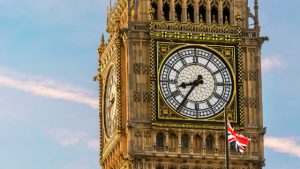
The image of Shamima Begum is familiar to most people in the UK, and many around the globe. The twists and turns in her tragic story have played out in front of the world’s media, since she ran away as a fifteen year old to be part of ISIL (the so-called Islamic State of Iraq and the Levant) in 2015. She was found by a journalist in 2019, living in a Syrian refugee camp. Ms Begum had married an ISIL fighter, and by this stage was heavily pregnant with her third child. Her two older children had already died, and this baby would also lose the fight for survival in the brutal conditions of the camp. Her husband, a Dutch national called Yago Riedijk, is believed to be in a Kurdish run detention centre, elsewhere in northern Syria.
In 2019 the Home Secretary revoked Ms Begum’s British citizenship, on the basis that she was a security risk, and that the action would not jeopardise her Article 2 right to life or Article 3 right to freedom from torture and inhuman or degrading treatment. It was also asserted that she would not be rendered stateless, as she had dual UK/Bangladeshi citizenship (although Bangladesh denied this).
The latest chapter in the saga has been the Supreme Court ruling in relation to her bid to return to the UK. Previously, the Court of Appeal had found that she should be allowed to return, as it would be impossible to effectively and safely appeal the revocation of her citizenship whilst acting remotely from the camp. Nevertheless, the Supreme Court reversed this finding, concluding:
- That the Court of Appeal had been wrong to treat an individual’s right to a fair hearing as the paramount consideration in a situation where national security was at stake.
- The Secretary of State was in a better position than a court to assess the level of security threat which an individual posed, and that judges should not oust the determination of the proper decision-maker.
- The proper response was to stay the appeal proceedings until such time as she can safely participate.
There are many aspects to this ruling which could, and no doubt will, be discussed at length by legal professionals and academics, but one facet which strikes us is the stark contrast between the Supreme Court and Court of Appeal in approaching the right to a fair hearing. The higher court was crystal clear that an individual’s right to a fair hearing could be denied, or at least delayed, for the public good. Although this is instinctively troubling, is it necessarily incorrect?
It is unquestionable that Article 6 (the provision of the ECHR guaranteeing the right to a fair hearing) is an absolute right. In other words, the Convention text does not provide State parties with the scope to limit its application if it is necessary and proportionate to do so, in a similar way to the Article 9 right to freedom of belief, or the Article 10 right to freedom of expression. Therefore, the drafting of the Convention does favour the approach of the Court of Appeal.
It was also noticeable, reading the judgment, that the Supreme Court did not deal with the Common Law right to a fair trial which it had previously articulated in the UNISON case. Even though there were crucial Common Law elements to Ms Begum’s arguments, this one did not feature. It was not criticised, rejected or deemed inapplicable, this right to a fair trial was an unmentioned elephant in the room.
We wonder whether there is a political element to this approach. The Human Rights Act is currently under review, and there is a strong, right wing conservative majority in the House of Commons. Is the Supreme Court anxious to send a message that judges will respect their constitutional position, and that no action is necessary to restrain judicial over enthusiasm? Is this somehow a message that the judiciary are back to the traditional doctrine of judicial deference, after decisions such as Miller 2? Or is it simply that the facts of this case were unusual and extreme, and the Supreme Court quite properly reasserted the orthodox and necessary position that executive decision-makers are responsible for making complex determinations on questions of national security and this is no reflection whatsoever about the findings of recent key cases?
What the future holds for Shamima Begum remains unclear, but the wider future of human rights and the right to a fair trial is also in doubt. Only time will tell whether this ruling is represents a response to a unique set of circumstances, or signals a dramatic change in tone and direction from the Supreme Court.
Related Articles
R (Begum) v Special Immigration Appeals Commission [2021] UKSC 7
Independent Human Rights Act Review
Shamima Begum Case BBC News
R (Unison) [2017] UKSC 51



The British government has failed Shamima Begum and her human rights. They have made her stateless (Bangladesh gets to decide its citizenship law, and it says she is not a citizen).
And frankly, the government’s claim that she is a threat to the UK’s national security makes little sense. She is one person, she has no weapons. What exactly do they think she could do? Why do they even think she wants to threaten her home country?
She has been condemned to a legal limbo, like the detainees at Guantanamo Bay. And the she has been dumped on the Kurds. And the Kurds deserve better, considering the major role they played in the defeat of ISIS.